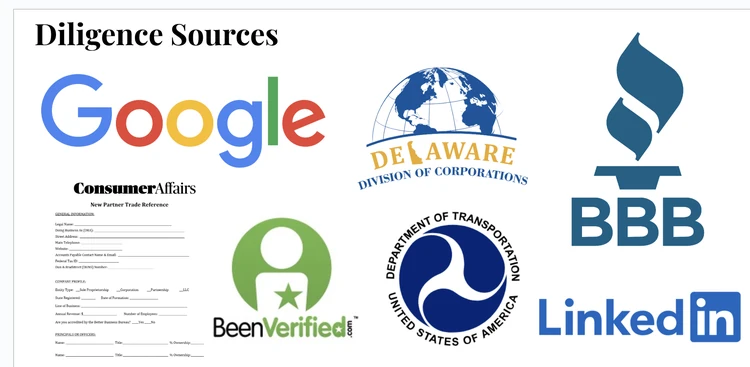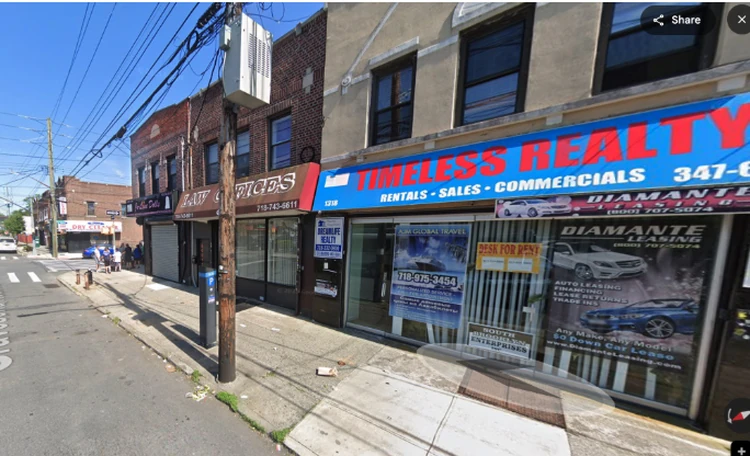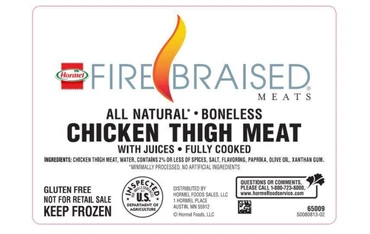Zombie companies are plentiful but, like their human counterparts, they're pretty easy to spot if you look carefully
Just because Halloween is over doesn't mean it's safe to let your guard down. After all, zombies exist all year, not just on Oct. 31. OK, maybe there aren't real human-style zombies but there are plenty of zombie companies out there. We at ConsumerAffairs know, because we run into them all the time and it's only due diligence that lets us weed them out so we can, in turn, keep you from encountering them on our site.
Not familiar with the term due diligence? It's something big corporations and seasoned investors use every time they're considering gobbling up a competitor,investing in a new company or hiring someone to manage their finances.
Very simply, due diligence means being as careful as you can be without cowering in a corner. For a more formal definition, we turned to ChatGPT, which replied:
Due diligence
Definition: A systematic process of gathering, verifying, and evaluating information before making a decision or taking action especially in contexts involving risk, investment, or public accountability.
In practice:
For businesses, it means investigating a potential partner, acquisition, or contract to confirm facts and assess risks.
For journalists, it means confirming claims through credible sources, verifying documents, and seeking comment from all relevant parties.
For consumers, its the careful review of a product, service, or company before purchase or commitment.
Key idea: Due diligence is about acting responsibly by checking the facts before you commit.
While practicing due diligencesounds pretty simple and hard to argue with, it's unfortunately true that many, if not most, consumers too often fail to do even the simplestdue diligence. We end up buying a home warranty from a company that disappears overnight, ordering a product that's recommended by a popular social media influencer who is in it strictly for the moneyor stocking up on vitamins and supplements recommended by an out-of-work actor in a white coat.
It's human nature to be trusting and eager to believe the best of other people, but it's not a good way to make the most of your money or, for that matter, to safeguard your life and health. So let's take a look at the essentials of performing due diligence. We're grateful for the assistance of Chang Paik, a Harvard MBA who just happens to be ConsumerAffairs' Chief Financial Officer.
As CFO, Chang's responsibilities include keeping ConsumerAffairs out of trouble when it buys or leases equipment, services and property andjust as importantlywhen it considers potential partners for its consumer reviews, buyer's guides and other editorial content.
For starters, when he's considering a prospective client or partner, Chang looks at:
- Years in business. How long has the company been around?
- The management team. Are they qualified, experienced, reputable?
- Ownership. Who owns the company? Is it a major corporation, a mom-and-pop, a start-up or a subsidiary of another firm?
- Revenue. Does the company have substantial revenue enough to ensure that it can produce its products, pay claims and generally carry out its responsibilities?
- How many employees? Some companies have hundreds or thousands of employees. A surprising number have just a handful or even just one person.
- Are there independent reviews of the company's performance on reputable review sites like ConsumerAffairs, the Better Business Bureau, Consumer Reports, etc.?
- Regulatory licenses. Is the company licensed in the cities where it operates, is its corporate charter up to date, does it have the specialized permits required for its line of work (drugs, aircraft, etc.)?

Things aren't always what they seem
All these little items seem pretty obvious, you might say. True but, as we all know, people aren't always truthful in their claims. Here are a few examples Chang cited of companies that turned out not to stand up to scrutiny:
- The supposed CEO of one company, upon a investigation, turns out to bea 78-year-old flight attendant who lives a few doors down from the company's registered address in Brooklyn.
- The company's website doesn't work. It contains a few links that don't go anywhere.
- The homepage is flagged by Google as Not Secure.
- If you click on Get a Free Quote, it just takes you to the home page.
- The links to X, Facebook, Instagram, etc., are all blocked.
- The company's phone number previously belonged to a surgeon in Tijuana.
These are all true and are also very typical of zombie companiesthey're like something that at first glance looks to be alive but really isn't. So here are some tips to help you steer clear of zombies.
Start simply with Google
The good thing about doing due diligence systematically is that you frequently find what you need to know very quickly. For example, let's say you're considering an extended warranty for your car. Google the name of the company and if you find this ...

That pretty much ends the due diligence right there. But if nothing too horrendous turns up in your Google search, it's time to move on and check out the company's business address. Let's say you're still looking for an extended warranty company, so you put in the Brooklyn street address and get this:

Now, you might want to rent an apartment from this outfit but it's probably not the prominent and well-established warranty firm that will be there when your car needs work.
So how about this one? This looks pretty respectable, doesn't it?

No, it doesn't. If the AAAAble Extended Warranty Co. is so big and solid, why isn't its name on the building? Large office buildings like this one typically have a large suite, or even a whole floor, that they rent out as time-share offices to people who need a desk and a reception area once in a while. They are basically mail-drops. Anyone who doesn't have a 24/365 office lease probably isn't a titan of the business world.
Check registrations
If you've gotten this far with no red flags, it's time to check some official records. Let's say AAAAble claims to be registered in Delaware. A quick visit to the Delaware Division of Corporationswill tell you whether the company is indeed incorporated in Delaware. You can also find the address of the company's Registered Agentusually an attorney who is the official who accepts legal notices and other correspondence. You probably won't find much more, since officers, stockholders, etc., are not usually public record but you will be able to confirm that company exists ... on paper, anyway.
It's decision-time
There's a lot more you can do but if you make it this far and the company seems to be what it says it is, it's time to compare it to other companies offering similar services or products. This is where size is an advantage. A big, established company will have more reviews, more staff, more resources and basically more of everything that it needs to find and retain customers.
Review sites that verify the identity of the reviewers, as ConsumerAffairs does, are the most reliable way of finding out how well a company performs its functions, short of interviewing hundreds of its customers. Keep in mind that anyone can have a bad experience with even the most reliable and trustworthy company. Mistakes happen, so you're not looking for perfection, just for a solid record of satisfied clients.
Remember too that even the best products and services may not be right for you. An extended auto warranty is good for someone who doesn't want to worry about taking care of their carand doesn't want any financial surprises. But someone who is an expert mechanic and is married to an accountant who watches every penny probably can maintain his car himself and have enough savings to cover unexpected issues.
Due diligence is a simple phrase and, as we've seen, is something you can do at home in your spare time, just like the stuff advertised on TV and the web. And, no, you don't have to be a professional to do it.
Posted: 2025-11-03 01:35:53





















